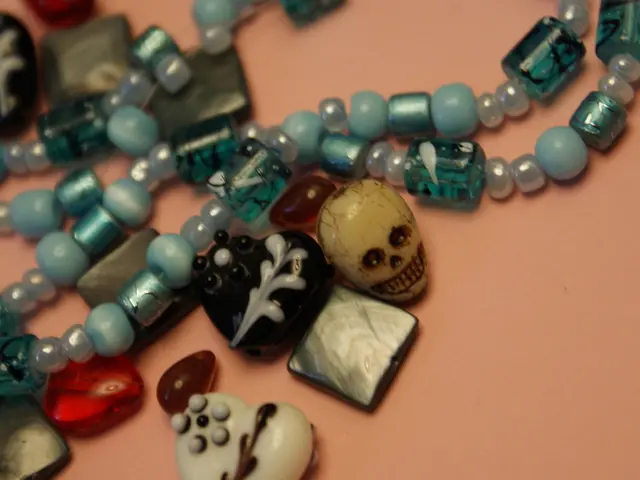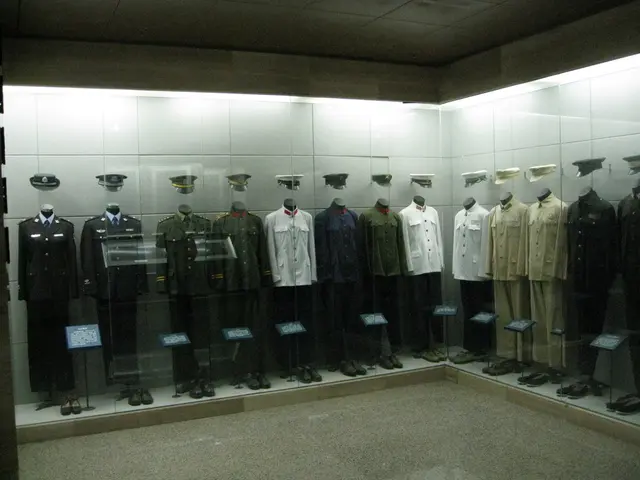Revitalized Laugavegur: Retail Recovery in the Face of Adversity
In the wake of reduced foreign tourism, the once bustling Laugavegur - Reykjavik's iconic shopping street - confronts an unfortunate reality. "Til leigu" (For Rent) signs now adorn the windows of vacated shops, a stark testament to the impact of the pandemic. But as darkness often breeds innovation, these abandoned spaces have sparked the arrival of imaginative enterprises.
One such enterprise is the Munasafn RVK Tool Library, led by Anna de Matos. In a prime position previously occupied on Reykjavik's tourist-ville, this innovative project empowers the public to borrow tools and useful articles, such as camping gear. The excitement was palpable as Anna welcomed visitors on its first day of business in its new home.
Other businesses, too, are embracing the change. Sæunn Ósk Unnsteinsdóttir, project manager for the office of Reykjavik's mayor, highlights Hjarta Reykjavikur - a design and craft boutique previously catering to tourists - as a successful example. Recognizing an opportunity in the absent tourist crowd, the store shifted its focus to Icelandic consumers by offering jigsaw puzzles and opening an art gallery. Hjarta Reykjavikur even expanded its premises amid the crisis, a testament to the resourcefulness of the city's businesses.
Their story is echoed by other resident-focused businesses like Aftur, Kron, and Kokka, which found room to grow during the tourism hiatus. The shift is not limited to retail; performance art is also finding a home on Laugavegur, with artists taking advantage of the temporarily shrunken tourist industry.
Rósa Birgitta Ísfeld, a Reykjavik musician, capitalized on this opportunity by organizing Talið í Tónum - a musical advent calendar event featuring local musicians performing daily from December 1st-23rd. By renting a closed gift shop on Laugavegur, Rósa brought music to the heart of the city during the winter.
Geoffrey Thor Huntingdon-Williams, manager of Prikið Kaffihús, is another advocate for innovative creativity in Reykjavik. His project, Sköpum líf í lokun, offers support to initiatives aiming to sustain the city's spirit during the pandemic. One such project, set to debut in January at Laugavegur 2, is a swap shop that encourages people to bring in clothes and exchange them for new items.
This amalgamation of individual vision and civic cooperation seems to be guiding Reykjavik's flagship street through the Covid storm, steering it towards creative waters where the spirit of the city thrives. Anna of the Tool Library expresses a sentiment shared by many when she states, "Covid-19 has definitely pushed us in the right direction. Has it technically helped us? I don't know if 'help' is the word! But we are definitely pushing it forward."
In conclusion, as the tourist throngs fade, resourceful locals are filling the void with artistic initiatives, resident-focused businesses, and community-driven projects. Innovative social and creative spaces are blossoming in the heart of Reykjavik, reminding us that adversity breeds innovation and the human spirit perseveres.
John Pearson is a freelance journalist hailing from London, now residing in Reykjavik. With a background in music broadcasting, underwater photography, and scuba diving instructorship, his work captures the resilience and adaptability of the creative community in Reykjavik.
Enrichment Data:While specific information about innovative social, creative, and retail initiatives in vacated spaces on Laugavegur is scant, there are insights from similar initiatives in Reykjavik that can provide us with a sense of the trends emerging:
- Artistic Initiatives: With artist-led initiatives like Gallery Kannski advocating for issues like artist salaries, we can assume that artists and creatives are adapting to changing economic conditions and engaging with their community[1].
- Retail Initiatives: The success of discount grocery stores like Krónan suggests a shift towards more affordable retail options, potentially indicative of a broader strategy to engage local consumers and maintain economic activity on shopping streets like Laugavegur[1].
- Social Initiatives: Innovative social events, such as speed dating at Bíó Paradís, show that cultural institutions are adapting to bring people together and revitalize social activities in Reykjavik[1].
By focusing on local needs, creativity, and community engagement, similar initiatives on Laugavegur might take the form of community arts spaces, sustainable retail, and social programs that attract and retain local customers while revitalizing the area.
- The Tool Library in RVK, run by Anna de Matos, now occupies a prime location on Reykjavik's shopping street, proving that nature (abandoned spaces) can foster tourism (innovative enterprises) within the city.
- Sæunn Ósk Unnsteinsdóttir, the project manager for Reykjavik's mayor's office, praises Hjarta Reykjavikur, a craft boutique that pivoted its business strategy to cater to Icelandic consumers, exemplifying the transformation in the tourism industry.
- Aftur, Kron, and Kokka, along with other resident-focused businesses, have grown during the tourism hiatus, showing how businesses can capitalize on changing consumer behavior and preferences.
- Performing artists have found a home on Laugavegur, with events like Talið í Tónum, organized by musician Rósa Birgitta Ísfeld, bringing music to the heart of the city during the winter.
- Geoffrey Thor Huntingdon-Williams, manager of Prikið Kaffihús, supports and promotes innovative projects aimed at sustaining Reykjavik's spirit during the pandemic.
- These creative initiatives, including the swap shop set to debut at Laugavegur 2 in January, are shaping the future of Reykjavik's flagship street, transforming it into a hub for artistic expression, resident-focused businesses, and community-driven projects.
- The adaptability and resilience showcased by these innovative projects suggest that Reykjavik will continue to thrive, with the finance, retail, lifestyle, home-and-garden, and shopping sectors adapting to cater to local tastes and needs.







